
International Journal of Antimicrobial Agents
Scope & Guideline
Advancing the Fight Against Antimicrobial Resistance
Introduction
Aims and Scopes
- Antimicrobial Resistance Research:
The journal emphasizes studies on the mechanisms and epidemiology of antimicrobial resistance, particularly in common pathogens such as Escherichia coli, Klebsiella pneumoniae, and Staphylococcus aureus. - Clinical Pharmacokinetics and Pharmacodynamics:
Research focusing on the pharmacokinetics and pharmacodynamics of antimicrobial agents, aiming to optimize dosing regimens and improve therapeutic outcomes in various patient populations. - Innovative Therapeutic Strategies:
The journal publishes articles on novel therapeutic approaches, including combination therapies, new antimicrobial agents, and adjunct therapies to enhance the efficacy of existing treatments. - Antimicrobial Stewardship:
A focus on strategies to optimize the use of antimicrobials in clinical settings, including stewardship programs and guidelines for appropriate prescribing practices. - Infection Control and Epidemiology:
Research related to infection control practices, surveillance of antimicrobial resistance, and the impact of public health interventions on infection rates. - Emerging Infectious Diseases:
The journal addresses the challenges posed by emerging infectious diseases and the role of antimicrobial agents in their management.
Trending and Emerging
- Machine Learning and Predictive Analytics:
The application of machine learning algorithms to predict antimicrobial resistance patterns and optimize treatment regimens is gaining traction, highlighting the intersection of technology and clinical microbiology. - Phage Therapy and Alternative Antimicrobials:
Research on bacteriophage therapy and other alternative antimicrobial strategies is emerging as a promising area, particularly for multidrug-resistant infections. - Personalized Medicine Approaches:
There is an increasing emphasis on personalized medicine in infectious disease treatment, with studies focusing on tailoring antimicrobial therapy based on genetic, pharmacokinetic, and clinical factors. - Global Surveillance and Epidemiology:
The journal is seeing a rise in research related to global surveillance of antimicrobial resistance and the epidemiology of infectious diseases, driven by the need for comprehensive data to inform public health strategies. - Antimicrobial Stewardship Innovations:
Innovative approaches to antimicrobial stewardship, including new guidelines and educational interventions, are trending as healthcare systems seek to combat rising resistance rates. - Impact of COVID-19 on Antimicrobial Use:
Research examining the impact of the COVID-19 pandemic on antimicrobial prescribing patterns and resistance trends is becoming increasingly prominent, reflecting the ongoing global health crisis.
Declining or Waning
- Traditional Antibiotic Development:
Research centered on the development of traditional antibiotics has diminished as the focus shifts towards novel mechanisms and combination therapies to combat resistance. - General Microbial Ecology Studies:
Publications focusing solely on microbial ecology without direct implications for antimicrobial resistance or therapy have decreased, as the journal emphasizes more clinically relevant studies. - Non-Clinical Trial Research:
The frequency of publications based on non-clinical trial research, such as in vitro studies without translational significance, has waned in favor of clinical trial data and real-world evidence. - Conventional Resistance Mechanisms:
Research specifically detailing conventional resistance mechanisms (e.g., beta-lactamase production) is less prevalent as newer and more complex resistance mechanisms and their clinical implications gain attention. - Basic Science without Clinical Application:
There is a noticeable decline in basic science research that does not directly correlate with clinical applications or antimicrobial stewardship, as the journal aims to prioritize impactful research.
Similar Journals

Infection and Drug Resistance
Uncovering insights into drug efficacy and resistance mechanisms.Infection and Drug Resistance, published by DOVE MEDICAL PRESS LTD, is a leading open-access journal dedicated to the critical fields of infectious diseases and pharmacology. Since its establishment in 2008, this journal has emerged as a vital resource for researchers, professionals, and students alike, offering thorough insights into the mechanisms of drug resistance and the effectiveness of various therapeutic interventions. With an impressive 2023 impact factor placing it in the Q2 category across multiple relevant disciplines, including Infectious Diseases and Pharmacology, it serves as a significant platform for high-quality research dissemination. Infection and Drug Resistance aims to foster a deeper understanding of the evolving challenges in managing infectious diseases and enhancing drug efficacy, contributing to the global discourse on public health. The journal's commitment to open access ensures that vital knowledge is readily available to promote broader scholarly engagement and innovation.

Current Treatment Options in Infectious Diseases
Bridging Research and Practice in Infectious Disease Therapy.Current Treatment Options in Infectious Diseases, published by SpringerNature, is a pivotal peer-reviewed journal dedicated to advancing the field of infectious disease management and therapy. With a focus on the latest treatment modalities, this journal serves as a vital resource for researchers, healthcare professionals, and students striving to improve patient outcomes in infectious diseases. Although it is not an open-access journal, it offers valuable insights through carefully curated articles that emphasize evidence-based practices and innovative approaches in the treatment landscape. By fostering a cross-disciplinary dialogue, Current Treatment Options in Infectious Diseases aims to bridge the gap between research and clinical application, making it an essential platform for staying abreast of developments in this rapidly evolving field.
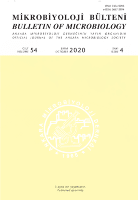
MIKROBIYOLOJI BULTENI
Pioneering Insights in Immunology and MicrobiologyMIKROBIYOLOJI BULTENI, with ISSN 0374-9096, is a prestigious academic journal published by the ANKARA MICROBIOLOGY SOC, located in Ankara, Turkey. Established in 1973, this journal has been a vital conduit for disseminating research in the fields of Immunology, Microbiology, and Infectious Diseases, garnering a reputation as a significant contributor to the scientific community. The journal is currently ranked in the Q3 category within Immunology and Microbiology (miscellaneous), and Infectious Diseases, indicating its impactful presence amidst contemporary research. With access options that may be restricted, MIKROBIYOLOJI BULTENI actively welcomes submissions that advance the understanding of critical microbiological principles and practices, thereby supporting both national and international research efforts. Researchers, professionals, and students are encouraged to explore the latest findings shared in this journal, as it continually shapes the landscape of microbiology and infectious disease studies through its comprehensive and rigorous peer-reviewed publications.
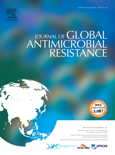
Journal of Global Antimicrobial Resistance
Advancing global solutions to antimicrobial resistance.The Journal of Global Antimicrobial Resistance, published by Elsevier Scientific Ltd, is a premier open access journal dedicated to addressing the critical issue of antimicrobial resistance on a global scale. Established in 2013 and significantly gaining traction as an open access platform since 2020, this journal serves as an essential resource for researchers, healthcare professionals, and policy makers invested in immunology, microbiology, and associated fields. With an impressive impact factor reflected through its consistent ranking in the Q2 category across multiple disciplines, including Microbiology and Immunology – where it ranks #29 out of 140 in Medical Microbiology – the journal ensures high-quality peer-reviewed articles that push the boundaries of current knowledge and practice. By offering a global perspective on research trends and public health implications, the Journal of Global Antimicrobial Resistance plays a pivotal role in advancing the scientific discourse necessary to combat the rising tide of antimicrobial resistance worldwide.

Infectious Diseases and Therapy
Exploring the frontiers of infectious disease management.Infectious Diseases and Therapy is a premier scholarly journal published by Springer London Ltd, dedicated to advancing the understanding of infectious diseases through rigorous research and evidence-based therapy. With an esteemed Q1 ranking in both the Infectious Diseases and Microbiology (medical) categories, this journal is a vital resource for researchers, healthcare professionals, and students aiming to stay at the forefront of developments within the field. Launched in 2012, it has embraced an Open Access model, ensuring that groundbreaking studies and critical reviews are accessible to a global audience. Operating from its office in London, the journal encourages the dissemination of innovative therapies and diagnostic methods, fostering collaboration and knowledge sharing among the scientific community. In a landscape where infectious diseases pose significant health challenges, Infectious Diseases and Therapy stands as an essential platform for impactful research that can lead to improved healthcare outcomes worldwide.
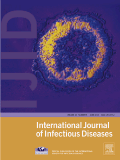
INTERNATIONAL JOURNAL OF INFECTIOUS DISEASES
Elevating the discourse on infectious disease science.INTERNATIONAL JOURNAL OF INFECTIOUS DISEASES, published by ELSEVIER SCI LTD, stands as a leading platform in the realm of infectious diseases, contributing significantly to the global understanding of this critical field. With an impressive impact factor, the journal maintains a distinguished Q1 ranking across various categories, including Infectious Diseases, Medicine (miscellaneous), and Medical Microbiology, demonstrating its high relevance and influence among contemporary research. Since its inception in 1996, it has embraced an Open Access model, allowing for wider dissemination of essential research findings that can inform public health policies and clinical practices. With a commitment to advancing scientific knowledge, this journal is not only a vital resource for researchers and professionals but also serves as an invaluable educational tool for students interested in the complexities of infectious diseases and their management. For those looking to stay at the forefront of research and innovation in this field, the INTERNATIONAL JOURNAL OF INFECTIOUS DISEASES is an indispensable resource.

INFECTION
Uncovering Breakthroughs in Microbiology and MedicineINFECTION is a prestigious journal, published by Springer Heidelberg, that serves as a leading platform for the dissemination of critical research in the fields of Infectious Diseases, Microbiology, and Medicine. With an impressive Q1 ranking in multiple categories such as Infectious Diseases, Medicine (miscellaneous), and Medical Microbiology, the journal is recognized for its high-quality content and impactful contributions to the scientific community, as evidenced by its Scopus rankings placing it in the top 10th percentiles. Since its inception in 1973, and projected to continue until 2024, INFECTION has established itself as a vital resource for researchers, healthcare professionals, and students keen to explore the latest findings and advancements in infectious diseases. The journal provides a rigorous peer-review process, ensuring that only high-quality studies are published, making it an essential read for those seeking to deepen their understanding and stay abreast of the rapidly evolving landscape in infection research.
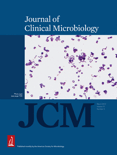
JOURNAL OF CLINICAL MICROBIOLOGY
Transforming Knowledge into Clinical PracticeJOURNAL OF CLINICAL MICROBIOLOGY, published by the American Society for Microbiology, stands as a premier resource for researchers and professionals in the field of medical microbiology. With an illustrious history dating back to 1975, this journal has consistently provided high-impact research, reflecting its status in the Q1 category among microbiology (medical) journals, and an impressive Scopus rank of 14 out of 140, placing it in the 90th percentile. The journal's commitment to unveiling foundational and innovative studies greatly contributes to understanding human health challenges posed by microbial pathogens. Researchers can expect rigorous peer-reviewed articles that cover a spectrum of topics, from diagnostic methods to clinical epidemiology, fostering a deeper understanding of microbiology's role in healthcare. While this journal does not offer open access options, its substantial impact factor underscores its relevance in shaping the conversation in clinical microbiology. The JOURNAL OF CLINICAL MICROBIOLOGY is indispensable for anyone dedicated to advancing their knowledge and practical skills in microbiology.
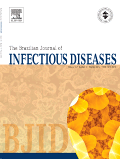
Brazilian Journal of Infectious Diseases
Unlocking the latest breakthroughs in infectious disease research.The Brazilian Journal of Infectious Diseases, published by Elsevier Brazil, is a premier open-access journal dedicated to advancing research and clinical practice in the field of infectious diseases. Since its inception in 2001, this journal has been pivotal in disseminating innovative studies and reviews that inform healthcare professionals and researchers alike. With an impressive impact factor reflected by its ranking in the second quartile for Infectious Diseases and third quartile for Medical Microbiology in 2023, the journal ranks #127 out of 344 in medicine – infectious diseases and #61 out of 140 in medical microbiology, showcasing its reputable standing in the scientific community. The Brazilian Journal of Infectious Diseases invites contributions that highlight significant findings, novel methodologies, and critical reviews aimed at enhancing patient care and public health initiatives. With an international readership and a focus on pressing issues in infectious diseases, it serves as an essential platform for knowledge exchange and collaboration among scholars and practitioners across Brazil and beyond. By reinforcing the importance of open access to scientific literature, this journal not only promotes transparency but also enhances the global discourse surrounding infectious diseases.

New Microbes and New Infections
Pioneering research on emerging microbes and infections.New Microbes and New Infections is an esteemed peer-reviewed journal published by Elsevier Sci Ltd that has been a prominent platform for disseminating groundbreaking research in the fields of Infectious Diseases and Microbiology since its establishment in 2013. With an impressive Open Access model, this journal ensures that vital research findings are readily accessible to researchers, healthcare professionals, and academics worldwide. Positioned in the Q2 category for Infectious Diseases and Q3 for Microbiology in 2023, it reaches a significant global audience, as demonstrated by its high Scopus rankings—#44 out of 344 in Medicine: Infectious Diseases, and #34 out of 182 in Immunology and Microbiology. The journal aims to inspire new ideas and foster collaborations by publishing high-quality research focused on novel microbes and infections, thus playing a crucial role in advancing science and public health in an era where understanding infectious agents is more vital than ever.